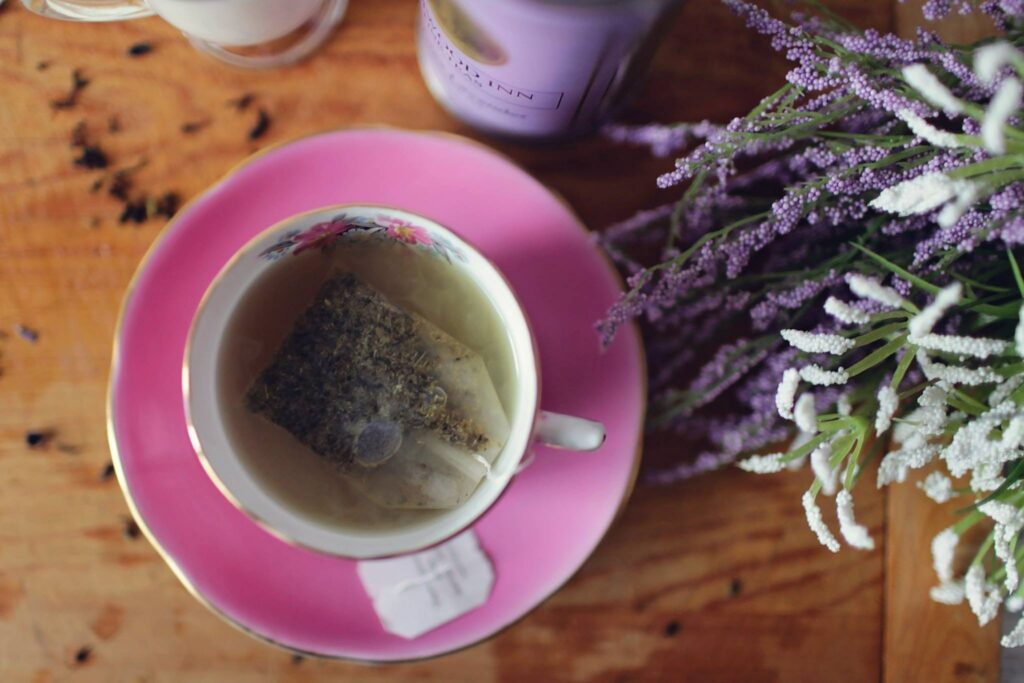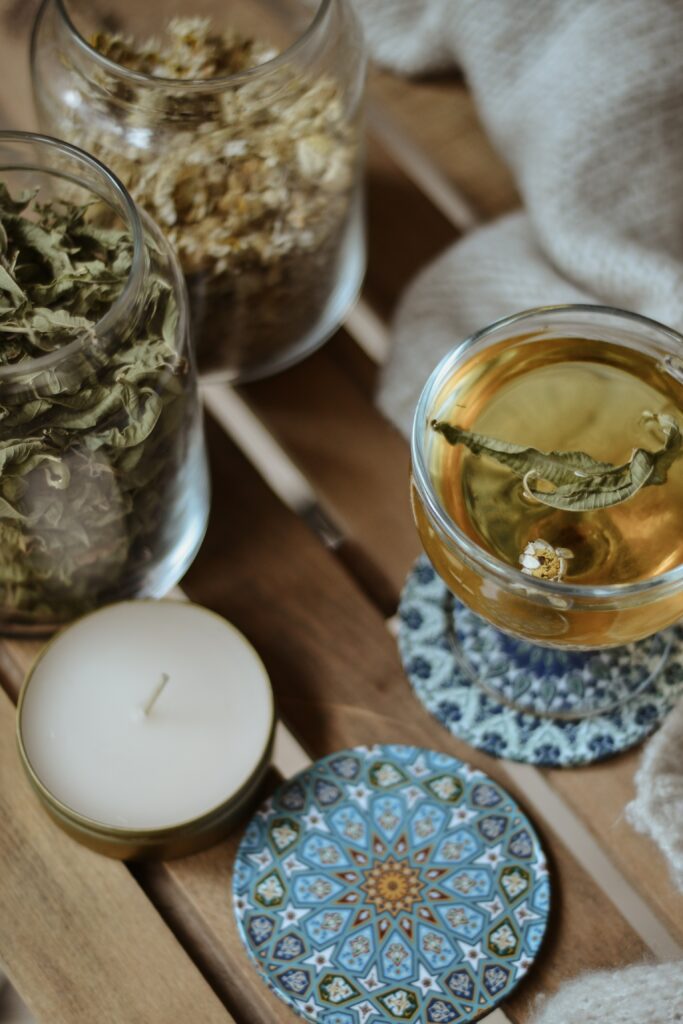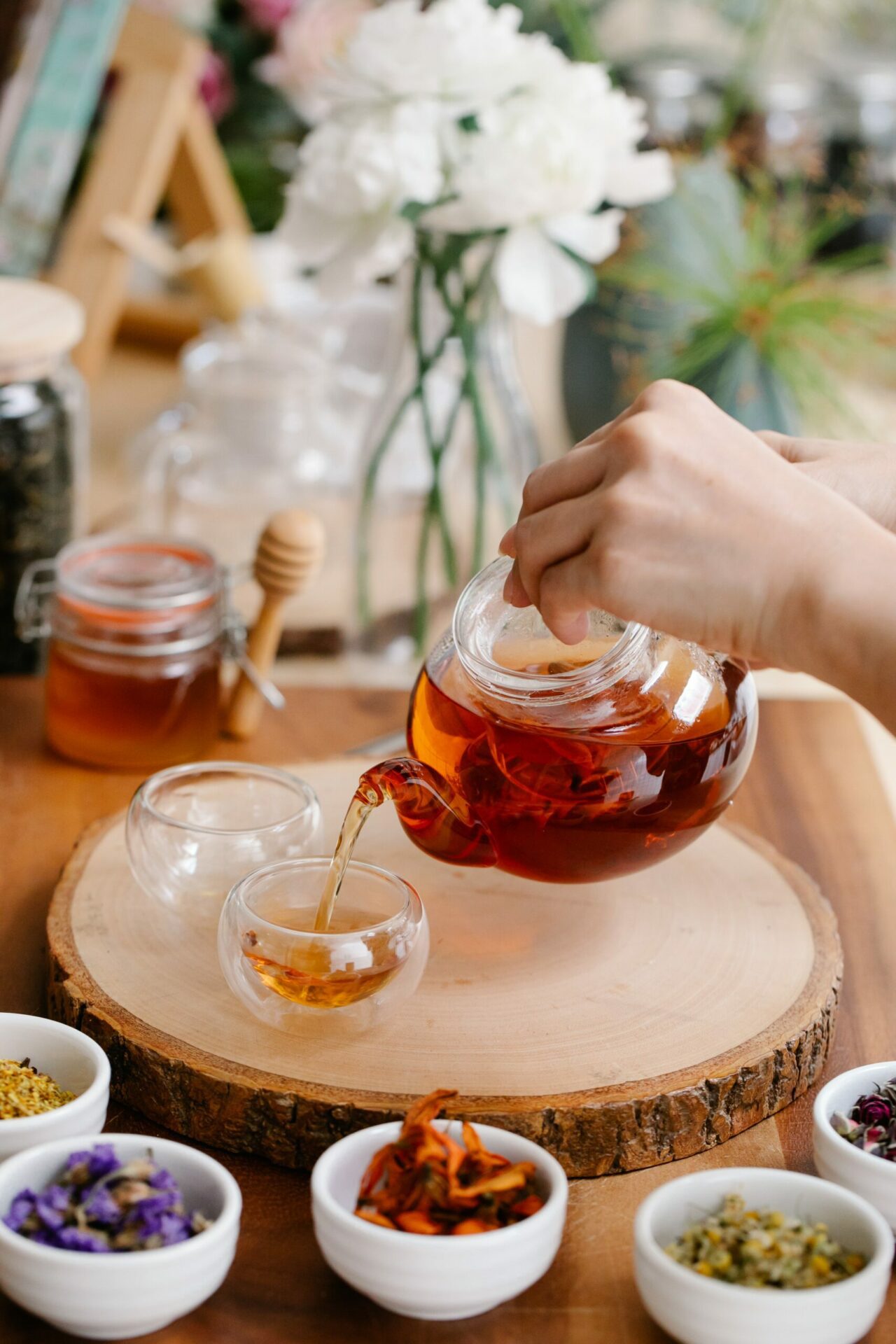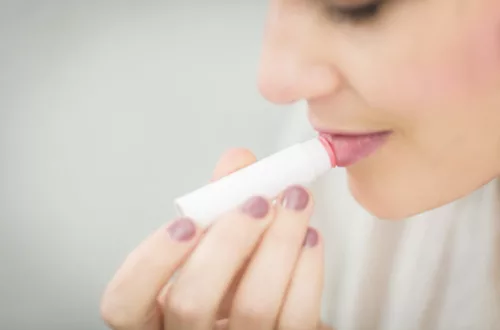Does Herbal Tea Break a Fast: Impact of Tea on Fasting

“Does Herbal Tea Break a Fast?” Individuals who practice intermittent fasting often wonder if consuming herbal tea during their fasting window will break their fast. This concern arises as people want to ensure they are reaping the maximum benefits of fasting without unintentionally hindering their progress. Herbal teas, known for their wide variety of flavors and potential health benefits, are a popular choice for those looking to stay hydrated while avoiding calorie intake.
Disclaimer: This article is provided for informational purposes only and should not replace professional medical advice. Please consult with a qualified healthcare practitioner or herbalist before using any herbal remedies.
The answer to this question largely depends on the type of herbal tea and any additives used. In general, plain herbal teas without any added sweeteners or creamers do not break a fast. This is because they do not contain significant nutrients that would interfere with the gut healing mechanism of intermittent fasting, called the Migrating Motor Complex (MMC) source.
However, it is important to note that not all herbal teas are created equal. Some may have additional ingredients or natural sweetness that could potentially disrupt a fast. To be certain, it is always best to read the labels and opt for plain, unsweetened options when choosing a herbal tea to consume during the fasting period.
Understanding Fasting
Basic Concepts of Fasting
Fasting is the practice of abstaining from food and drinks, except water, for a specified period. During the fasting period, the body enters a fasted state where it starts using stored energy, such as fat, to function. The duration of fasting varies, but typically lasts for several hours. In a fasting window, individuals refrain from consuming any caloric intake. This period is followed by an eating window, where individuals consume their daily calorie intake within a limited number of hours.
Fasting can lead to numerous benefits of fasting, including improved insulin sensitivity, lower insulin levels, regulated blood sugar levels, and better overall health.
Intermittent Fasting Plan

Intermittent fasting is a popular fasting method where individuals alternate between fasting hours and eating windows. Common intermittent fasting plans include:
- 16/8 Method: This plan involves fasting for 16 hours every day and eating within an 8-hour window. For example, if someone stops eating at 8 PM, they resume eating at 12 PM the following day.
- 5:2 Method: This method involves consuming a normal diet for five days a week, followed by two non-consecutive fasting days where individuals limit themselves to 500-600 calories per day.
- Eat-Stop-Eat: This approach entails fasting for a full 24-hour period once or twice a week, while eating normally on non-fasting days.
Intermittent fasting is designed to help individuals achieve better health by controlling calorie consumption and allowing the body to enter a fasting state. While fasting, individuals should strive to maintain appropriate daily hydration and avoid foods or beverages that may break their fast.
Herbal Teas and Fasting
Type of Herbal Tea
Herbal teas are made from various plants and plant parts, such as leaves, stems, or flowers. They are different from traditional teas, like green, black, and oolong, which are made from the leaves of the Camellia sinensis plant. Some popular herbal teas include chamomile tea, peppermint tea, ginger tea, rooibos tea, and fruit teas. Most herbal teas are naturally caffeine-free and have a variety of flavors, making them popular options during fasting periods.
Chamomile Tea and Fasting
Chamomile tea is a soothing herbal tea made from the flowers of the chamomile plant. It’s often consumed for its calming effects and is considered safe to consume during fasting due to its low-calorie content. Chamomile tea is usually made by steeping dried chamomile flowers in hot water and doesn’t contain added sugars or sweeteners that would break a fast. Drinking a plain cup of chamomile tea can help keep you hydrated and provide a source of relaxation during fasting without breaking your fast.
Peppermint Tea and Fasting

Peppermint tea is a popular herbal tea made from the leaves of the peppermint plant. It’s known for its refreshing and soothing properties and can help aid digestion. Similar to chamomile tea, peppermint tea is low in calories and doesn’t typically contain any additives that would disrupt a fast. Drinking a plain, unsweetened cup of peppermint tea during fasting can help soothe your stomach and keep you hydrated without breaking your fast.
Ginger Tea and Fasting
Ginger tea is made from the roots of the ginger plant and is known for its spicy and warming flavor. Ginger has a range of health benefits, including aiding digestion and supporting the immune system. As long as it’s consumed plain and without any additives or sweeteners, ginger tea is low in calories and safe to consume during fasting. It can help keep you hydrated and provide a warming comfort without breaking your fast.
Rooibos and Other Teas
Rooibos tea, also known as red tea, is made from the leaves of the rooibos plant native to South Africa. It’s another naturally caffeine-free herbal tea that can be consumed during a fast without breaking it. When consumed without any additives, rooibos tea is low in calories and provides a source of hydration.
Other herbal teas like yerba mate, fruit teas, and various tea blends can also be consumed during a fast, as long as they don’t contain any added sweeteners or calories. When choosing a herbal tea, it’s essential to check the ingredient list and ensure it doesn’t contain anything that might disrupt your fast, such as sweeteners or high-calorie ingredients.
To maintain your fast and enjoy a variety of herbal teas, it’s best to stick to plain, unsweetened options. You can experiment with different tea blends and flavors to find the perfect cup of tea that suits your taste buds and keeps you hydrated during fasting periods.
Effects of Herbal Tea on Fasting
Potential Impact on Fasting Window
Herbal tea can be a beneficial addition to one’s fasting regimen, particularly if it is free from added sugars, sweeteners, or artificial flavors. Drinking herbal tea during the fasting window can help suppress appetite, control hunger pangs and aid in weight loss. However, some herbal teas that contain carbohydrates from ingredients like ginger might impact blood sugar levels and insulin release, thus possibly affecting the fasting window1.

Metabolism and Energy Levels
Herbal teas have varying effects on metabolism and energy levels. For instance, teas containing the amino acid L-theanine may improve focus and cognitive function during fasting. Some herbs, such as green tea, contain epigallocatechin gallate (EGCG), known to support fat burning by boosting the metabolic rate2. This can further aid in weight loss efforts during intermittent fasting periods.
Herbal Tea and Cellular Response
Fasting leads to various cellular-level activities vital for overall health, such as autophagy (cellular waste removal) and improved response to stress. Herbal tea compounds have demonstrated benefits in supporting these processes. For example, antioxidants in green tea can help support cells’ defense mechanisms against oxidative stress and break down fatty deposits, thus aiding in body fat reduction3.
Oxidative Stress and Tea
Oxidative stress occurs when there is an imbalance between the production of free radicals and the body’s ability to neutralize them. Consuming antioxidant-rich herbal teas during fasting may help combat this imbalance. Antioxidants like polyphenols can neutralize free radicals, thereby reducing inflammation, improving gut health, and strengthening the immune system4. These effects may contribute to the prevention of chronic health conditions like cardiovascular disease.
In summary, herbal tea consumption during fasting can benefit weight loss, energy levels, and overall health. However, it is essential to choose herbal teas without added sugars or carbohydrates to avoid breaking the fasting window.
Footnotes
Maximizing the Benefits of Fasting with Herbal Tea
Choosing the Best Herbal Tea
During a fasting period, herbal tea can be a zero-calorie beverage that provides numerous health benefits. When selecting the best teas for fasting, weight loss, and overall health improvement, consider teas like white tea, green tea, oolong tea, matcha tea, hibiscus tea, and yerba mate. These teas are known for their antioxidant and metabolism-boosting properties, with green tea being especially rich in epigallocatechin gallate, an antioxidant that enhances fat burning.
How Much Tea Can You Drink During Fasting?

When it comes to drinking herbal tea during a fast, moderation is key. Large quantities of tea may have negative effects, especially if consumed in a short period. Aim for moderate amounts, such as 3-4 cups throughout the fasting hours. This ensures that the tea’s health benefits are experienced without causing any adverse reactions.
Adding Extras to Your Tea
When customizing your herbal tea, be mindful of the ingredients you add, as these may impact the efficacy of the fast. A squeeze of lemon is a great way to enhance flavor without breaking the fast, while zero-calorie sweeteners can be used sparingly for additional taste. However, avoid using energy drinks, apple cider vinegar, or yacon syrup as these may negatively affect the fasting state.
In conclusion, herbal tea can be a helpful tool for those practicing fasting for weight loss and overall health improvement. By selecting the right tea, maintaining moderate consumption levels, and carefully choosing the add-ons, herbal tea can contribute to maximum impact during fasting and provide a satisfying zero-calorie beverage alternative.
Myths and Misconceptions About Herbal Tea and Fasting
Can Tea Break a Fast?
There is a common misconception that consuming tea during fasting, specifically herbal tea, will break a fast due to its potential caloric content. However, for the most part, herbal tea will not break your fast. This depends heavily on how you plan on drinking the tea, as well as the actual type of tea you are drinking. It is important to keep in mind that the most important thing during fasting is to restrict caloric intake. Drinks such as black coffee and green tea are popular choices as they contain minimal calories.
Is Drinking Tea a Cheat During Fasting?

Another myth regarding tea and fasting is that drinking tea, specifically green or black tea, is considered cheating during fasting periods. This notion is false, as these teas are low in calories and do not substantially impact blood sugar levels or insulin sensitivity. In fact, green tea and black tea can be a good choice during fasting due to their potential health benefits and low caloric content.
Artificial Sweeteners and Fasting
A common concern among individuals who fast is whether or not adding artificial sweeteners to their tea will break their fast. While artificial sweeteners may not contribute to caloric intake, they can still have an effect on insulin levels. Some studies suggest that artificial sweeteners may affect blood sugar levels and insulin sensitivity, potentially disrupting the fasting process. Therefore, it is recommended to avoid or limit the use of artificial sweeteners during fasting.

In summary, herbal tea consumption during fasting is generally safe and does not break the fast, as long as caloric intake is restricted and artificial sweeteners are limited. Tea can be a beneficial and enjoyable part of any fasting regimen when consumed mindfully.
Conclusion
In general, consuming herbal tea during a fast does not necessarily break the fast, but it depends on the specific type of tea and how it is consumed. Unsweetened herbal teas are typically low in calories, making them a suitable choice for maintaining the fasting state. However, adding sweeteners or other additives can potentially break the fast and disrupt its benefits.
It is important to note that the effect of herbal tea on fasting can also depend on the individual’s body and their specific fasting goals. Some herbal teas may have a stimulating effect on metabolism or hunger, which could be counterproductive during a fast. It is advised to choose herbal teas without any added sugars or flavorings to minimize any impact on fasting.
Ultimately, herbal tea can be a beneficial and comforting option for those practicing intermittent fasting or other fasting methods. By selecting the appropriate herbal tea and consuming it without any additives, tea drinkers can continue to enjoy their favorite beverage without jeopardizing their fasting progress. Keep in mind that the impact of herbal tea during fasting might vary from person to person, so it’s best to pay attention to your own body’s response and adjust your tea drinking habits accordingly.






